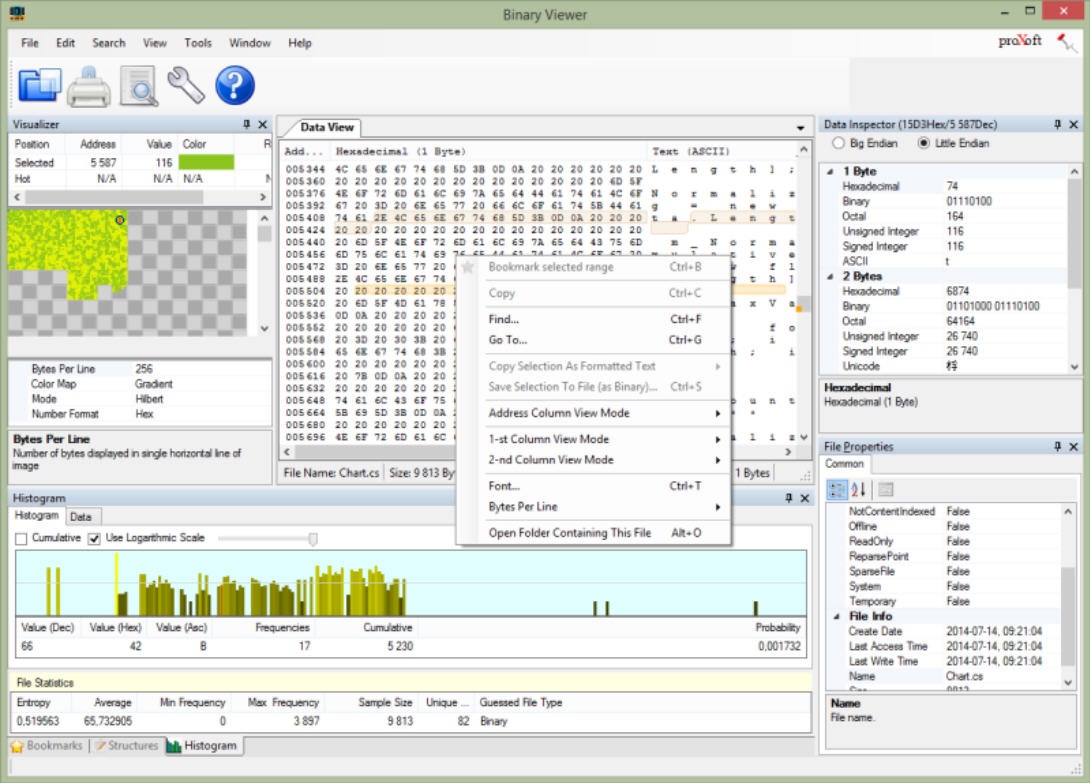
You’ve found a strange file. Maybe it has no extension. Perhaps it’s an unexpected email attachment. Could it be malware? You’d like to see what it contains. Sounds like a case for Binary Viewer.
This free program is a tiny download, with no installation required, and if you’ve ever used a hex editor you’ll immediately feel at home. Open your target file, it’s displayed in the usual Hex/ ASCII views, and you can browse the contents as required.
But, this is no ordinary viewer. There are no stupid file size limits (it can handle up to 16TB). It understands and displays Alternate Data Streams along with the regular file content. And all this can be shown in many different ways: hex, octal, unsigned integer, binary, ASCII or Unicode text, and optionally LittleEndian or BigEndian.
The "Find" tool is even more impressive, optionally searching for ASCII, Unicode, BigEndian or UTF8 text, hex sequences or binary patterns. Oh, and there’s also regular expression support, and a "Find in Files" which can search any folder tree you specify.
Visualizer and Histogram tools give a graphical view of your file, while a configurable Structures tool maps sections of the file to known file structures, like a bitmap or executable header.
Then there’s a Bookmarking system to help you keep track of important places within a file. A Properties pane which lists details you won’t always find elsewhere, including those more obscure file attributes (ReparsePoint or SparseFile, say). A Base64 Encoder/ Decoder, and more.
In theory, you can even open a physical drive and inspect its contents in the same way. In practice we found that could cause the program to crash, although we’re not yet sure if that’s a general issue or something specific to our system.
Even if there is a problem with drive handling, Binary Viewer is still a great program: tiny, configurable and absolutely packed with valuable viewing features. If there’s the faintest chance -- ever -- that you might want to explore a file in depth, go grab a copy for yourself.

